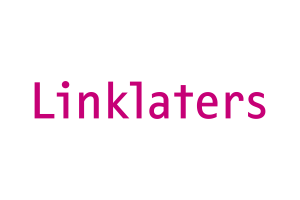The Peruvian private equity fund manager Enfoca SAFI carried out a secondary recapitalization operation for USD 950 million, involving the Canada Pension Plan Investment Board (CPPIB) and Vintage Funds from Goldman Sachs Asset Management LP (GSAM), together with the local pension managers Integra AFP, Prima AFP and Profuturo AFP.
In the transaction, Payet, Rey, Cauvi, Pérez Abogados advised Enfoca in the Peruvian jurisdiction, together with the legal boutique firm specialising in tax matters Estudio Miguel Mur. In New York, Davis Polk & Wardwell LLP supported the administrator.
Muñiz, Olaya, Meléndez, Castro, Ono & Herrera Abogados was the legal consultant for CPPIB and Goldman Sachs Asset Management in Peru. It was known that Fried, Frank, Harris, Shriver & Jacobson LLP participated, but had not confirmed it at the close of this edition.
The operation implies that the assets currently managed by Enfoca in three funds will be transferred to a new, larger investment vehicle, which has been constituted with the capital contributions of these institutional investors.
Enfoca SAFI composes its investment portfolio with companies mainly focused on the final consumption market. Currently, it has seven companies in portfolio, whose investments are distributed in more than one fund.
These investments include Compañía Latinoamericana de Radiodifusión SA, owner of the Peruvian television network Latina; fishmeal producer Pesquera Diamante SA; and the Celima Trébol-Cassinelli group, manufacturer and retailer of ceramic tiles and other products for the home, which comprises four different businesses.
Interview with Miguel Mur at Miguel Mur Abogados
Were there any difficulties when trying to liaise with legal experts from the other companies involved in this transaction?
No. As far as I was concerned, I always constant collaboration with my colleagues. We were all pushing toward the same goal: to try to move the transaction forward for the benefit of our clients. Personally, I focus my attention in order to avoid tax costs that could make the transaction unfeasible. Usually, this kind of agreements encloses many difficulties, including minor aspects that are necessary to solve for avoiding legal or tax contingencies in the future.
How was this reorganisation different than the first?
It was a totally different thing. My client, Enfoca, entered into a second stage through an unusual agreement in our legal market. The former investors were replaced by two other large institutional investors who reaffirmed their trust in the same Administrator or General Partner. From the tax point of view, this change of investors did not affect the achievement of the target.
What was the most challenging aspect of this transaction for you?
The diversity of agreements and businesses involved in the transaction, as well as the importance in economic terms, forced us to seek creative solutions. In addition, the commercial negotiations were developed within a certain dynamic that changed at the last moment, and as a consequence, this situation forced us to reformulate legal schemes that we thought were closed. I think we did an excellent job and we are sure that our client is very satisfied. The agreement was important for all parties, and for our country too, because it proved that the investors believe in Peru as a good place to make business.
Usually, what tax aspects consider this kind of agreements?
In legal terms, we focus our task in trying to avoid the tax costs that make non-viable the operation. First, we analyse the exit costs for investors, and on the other hand, since the business contains a private equity, with a certain maturity and exit period, we are aware that the savings of now will not be transferred in the future to the new investors.




















